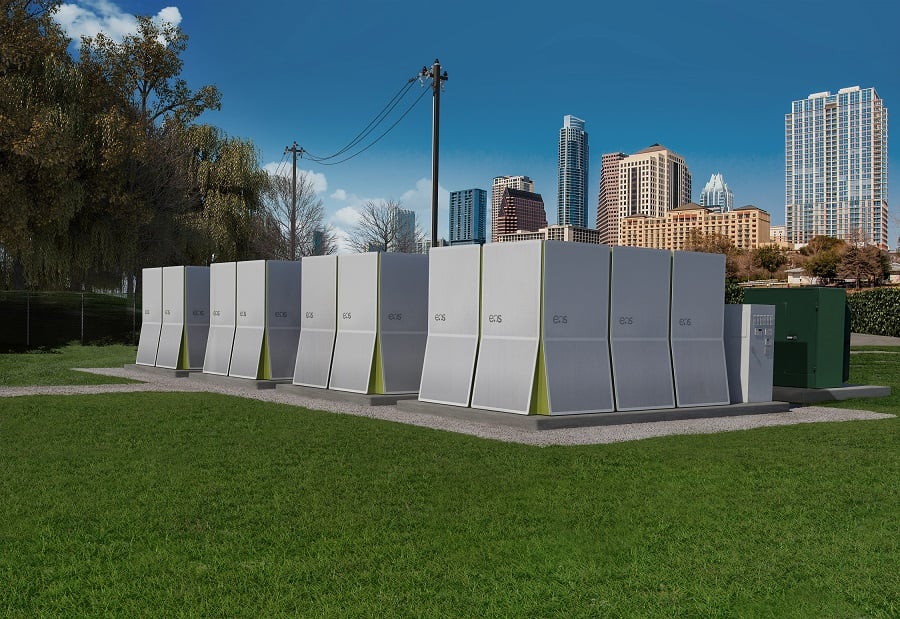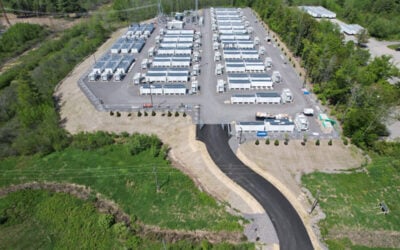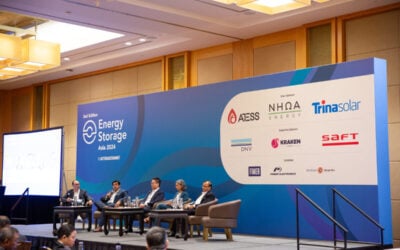
Multinational utility Engie will install a 1MW / 4MWh Eos Energy Storage zinc hybrid cathode battery system in Brazil and is expected to “exercise the system to its operational boundaries”.
France-headquartered Engie, known as GDF Suez prior to 2015, is developing a more than 5MW hybrid solar and wind energy project in Tubarão, Brazil, with which the energy storage system will be co-located.
Eos’ Aurora grid-scale storage system will be used, based on the company’s patented Znyth zinc hybrid cathode batteries. The energy storage company will work with power generation equipment provider Northern Power Systems, which will supply its FlexPhase power conversion technology and ‘intelligent’ controls.
“Engie will be evaluating performance of the AC-integrated Eos Aurora system under a range of applications and use cases,” Eos VP of business development, Philippe Bouchard, told Energy-Storage.News.
Try Premium for just $1
- Full premium access for the first month at only $1
- Converts to an annual rate after 30 days unless cancelled
- Cancel anytime during the trial period
Premium Benefits
- Expert industry analysis and interviews
- Digital access to PV Tech Power journal
- Exclusive event discounts
Or get the full Premium subscription right away
Or continue reading this article for free
These applications and use cases would mostly be geared towards integrating solar and wind energy, for example by time-shifting solar or wind power to meet peak periods.
“Engie intends to exercise the system to its operational boundaries to obtain a better understanding of response time, efficiency, and capacity degradation,” Bouchard said.
According to the Eos man, Engie, Eos and Northern Power Systems are currently working to finalise site-specific engineering and design tasks ahead of breaking ground on the project this summer. Bouchard said that Engie is among the partners the energy storage provider has in its ‘Genesis’ programme, where the battery maker works with major utilities to evaluate business cases, product development and optimisation, as well as commercial deployment.
Wind and solar are both growing in importance in Brazil, but the country still lacks suitable capacity for transmission and distribution in major load centres. Bouchard said he felt Eos’ battery systems – which typically store power for four hours’ continuous discharge – have an interesting long-term opportunity ahead of them due to these macro-economic drivers.
Pricing ‘already’ below US$100 per kWh
Eos has also been gathering interest for its systems with an interesting pricing strategy – the company’s batteries are available to order at below US$100 per kilowatt-hour, the price benchmark considered something of an inflection point across the industry.
However, the catch is that the batteries will be US$95 per kWh if shipped in the year 2022. The price for shipping during 2017 is at US$160 per kWh – which Eos argues is still as much as 30-40% lower than lithium-ion alternatives.
Philippe Bouchard of Eos said that he believed the batteries would still be competitive with lithium-ion even in five years’ time.
“We have evaluated and benchmarked against the most aggressive forward pricing for Li-ion manufacturers,” Bouchard said.
“Because it is a mature technology, Li-ion is further out on the asymptote of its cost curve: every billion dollars invested in manufacturing capacity and economies of scale has decreasing marginal returns in terms of cost reduction. Eos, on the other hand, is just beginning to ramp up volume and is seeing significant cost reduction,” adding that from the US$160 per kWh price of today to US$95 in 2022 “maintains that cost advantage five years out into the future”.





